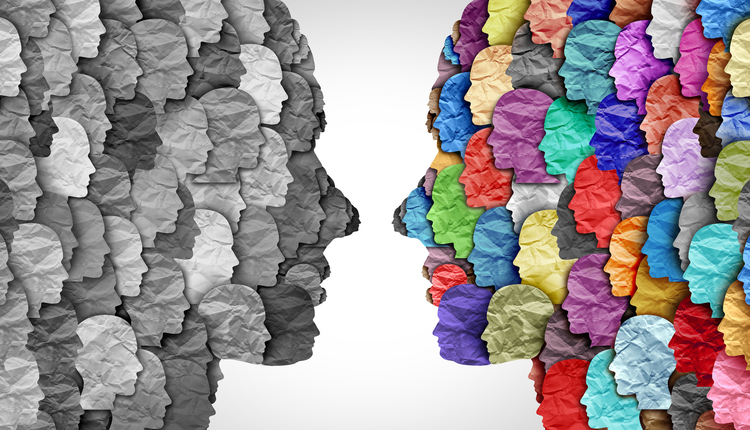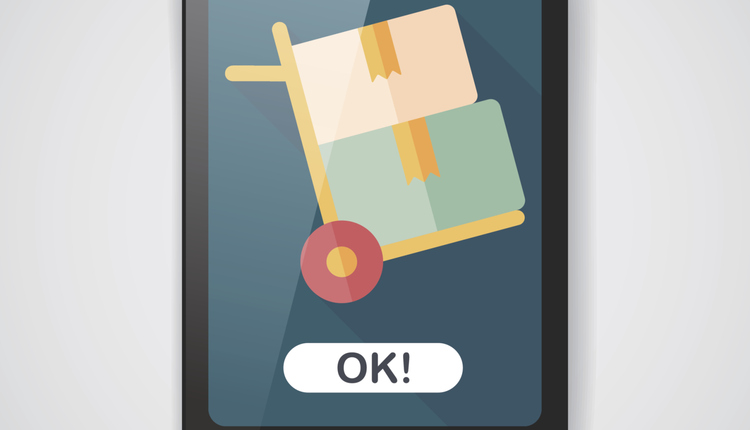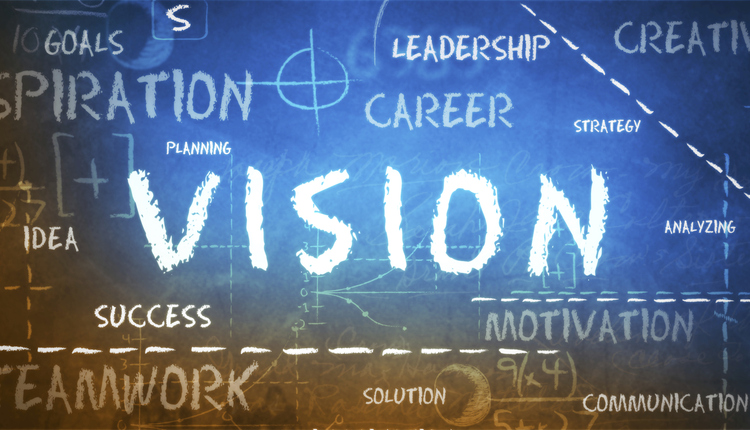"Treasure your relationships, not your possessions," Anthony J. D'Angelo
People are naturally social creatures - we crave friendship and positive interactions, just as we do food and water. The better relationships we have in life - including in the workplace - the happier and more successful we will be. President Teddy Roosevelt was on the mark when he said "The most important ingredient in the formula of success is knowing how to get along with people."
How can we build stronger relationships that will help us be more successful - and add value to the people we are trying to serve in our lives? Let me share Twelve Principles of developing good relationships that may be helpful.
Twelve Principles to Build Good Relationships
Here are twelve principles that can help build good relationship with people:
1) Develop Your People Skills. Good relationships start with good people skills. People skills are primarily "soft skills" like collaboration, communication and conflict resolution. How do we assess our current level of people skills and identify areas for improvement? Having trusted mentors or close friends that have the freedom to speak into your life is helpful - as is periodically taking confidential surveys and soliciting honest feedback.
2) Develop relationships with ALL people. Some people are very status conscious when it comes to building relationships. These people focus on establishing relationships with people perceived to be important in the hierarchy - those viewed as low on the totem pole are given little attention. But the people we most admire are those that treat all people as important. I resonate with the Bill McCartney when he said "Anytime you devalue people, you question God's creation of them." And I agree with Ann Landers when she says, "The true measure of a man is how he treats someone who can do him absolutely no good"
3) Be a giver - not merely a getter. Commit to being a servant leader who gives of oneself to help meet the needs of others. We can give of our time, knowledge and resources to help people around us. Giving of ourselves is the ultimate win-win that benefits both the receiver and the giver. Winston Churchill said, "We make a living by what we get. We make a life by what we give." Anne Frank reminds us that "No one has ever become poor by giving." And A.L. Williams reminds us that selfless giving also benefits us when he said, "The greater you help others, the greater your own success."
4) Employ active listening techniques. Carefully listening to what people are saying is crucial to developing good relationships. Rachel Naomi Remen emphasizes the importance of listening when she advises "The most basic and powerful way to connect to another person is to listen. Just listen. Perhaps the most important thing we ever give each other is our attention A loving silence often has far more power to heal and to connect than the most well-intentioned words." Active listening techniques include maintaining good eye contact, asking clarifying questions, and repeating back to the person what you think you heard him or her say.
5) Promote open and effective communication. The starting place in developing open and effective communication is to be a good listener as we just covered. In addition, relationships are enhanced when we encourage people to freely express their thoughts in a non-judgmental manner. It's also important to communicate with respect, and to stay rational and avoid being overly emotional. Also, we all have our preferred channels of communication (e.g. face-to-face, phone, email, texts, etc.) so using preferred channels can enhance communication effectiveness.
6) Work on building trust. Trust is foundational to good relationships. Tips to build trust include consistently following through on what we say we will do; never break confidences; and avoid bad mouthing others behind their backs.
7) Get to know people on a personal level. To really develop good relationships with others, we need to find ways to get to know people on a personal level (within reasonable boundaries). Asking non-probing open ended questions is a good starting place. Then look to build bridges and find connections. Joseph Newton said, "People are lonely (disconnected) because they build walls instead of bridges." To build bridges that connect you to people in a lasting way, share common experiences with them. Share meals. Go to a ball game or other events together. Take people to meetings with you. Participate on work projects together. Anything you experience together helps create a common history and build connection.
8) Be mindful - and know when to dial it back. Being mindful means taking responsibility for our words and actions. Those who are mindful are careful and attend to what they say, and they don't let their own negative emotions impact the people around them. Being mindful also includes knowing when to have fun and when to be serious, when to be over the top and when to be invisible, and when to take charge and when to follow.
9) Appreciate others. Showing sincere appreciation whenever someone helps you opens the door to great relationships. Prominent psychologist William James spend much of his career researching what our deepest needs were - and landed on the need for appreciation being at the top of the list for most of us.
10) Be positive, not negative. Focus on being positive. Positivity is attractive and contagious, and it will help strengthen relationships with those around you. On the other hand, no one wants to be around someone who's negative most of the time.
11) Be willing to compromise. Compromise involves each party getting something that he or she wants so that everyone wins (think Stephen Covey's "win-win" concept). People are drawn to those that are not self-centered and willing to put relationship over having everything done my way.
12) Practice common courtesy. A simple exchange of smiles and a "Hi" can be the first step in building a relationship. Making eye contact, saying "thank you" and picking up after yourself are also common courtesies that bring people together. Zig Ziglar was right when he said, "When you choose to be pleasant and positive in the way you treat others, you have chosen, in most cases, how you are going to be treated by others."
Building better relationships with people will enhance your influence and help you have greater success in achieving your goals. How will you use your greater influence? I resonate with Booker T. Washington when he said, "Those who are happiest are those who do the most for others." I wish you the best as you pursue better relationships with people and add even more value to the lives of people around you!
Wes Friesen, MBA, CMDSM, MDC, EMCM, CBA, ICP, CCM,CMA, CM, CFM, APP, PHR is the Manager of Billing, Credit and Special Attention Operations for Portland General Electric, a utility in Portland, Oregon that serves over 830,000 customers. Wes leads his teams with the able assistance of Supervisors Allison Rowden, Jan DeMeire, Heidi Fouts and Matt McHill. Wes teaches university classes and is a featured speaker at national Conferences like MAILCOM, National Postal Forum, NACUMS, and other regional and local events. Check out his personal website for free information (www.wesfriesen.com). He can be contacted at wes.friesen@pgn.com.
People are naturally social creatures - we crave friendship and positive interactions, just as we do food and water. The better relationships we have in life - including in the workplace - the happier and more successful we will be. President Teddy Roosevelt was on the mark when he said "The most important ingredient in the formula of success is knowing how to get along with people."
How can we build stronger relationships that will help us be more successful - and add value to the people we are trying to serve in our lives? Let me share Twelve Principles of developing good relationships that may be helpful.
Twelve Principles to Build Good Relationships
Here are twelve principles that can help build good relationship with people:
1) Develop Your People Skills. Good relationships start with good people skills. People skills are primarily "soft skills" like collaboration, communication and conflict resolution. How do we assess our current level of people skills and identify areas for improvement? Having trusted mentors or close friends that have the freedom to speak into your life is helpful - as is periodically taking confidential surveys and soliciting honest feedback.
2) Develop relationships with ALL people. Some people are very status conscious when it comes to building relationships. These people focus on establishing relationships with people perceived to be important in the hierarchy - those viewed as low on the totem pole are given little attention. But the people we most admire are those that treat all people as important. I resonate with the Bill McCartney when he said "Anytime you devalue people, you question God's creation of them." And I agree with Ann Landers when she says, "The true measure of a man is how he treats someone who can do him absolutely no good"
3) Be a giver - not merely a getter. Commit to being a servant leader who gives of oneself to help meet the needs of others. We can give of our time, knowledge and resources to help people around us. Giving of ourselves is the ultimate win-win that benefits both the receiver and the giver. Winston Churchill said, "We make a living by what we get. We make a life by what we give." Anne Frank reminds us that "No one has ever become poor by giving." And A.L. Williams reminds us that selfless giving also benefits us when he said, "The greater you help others, the greater your own success."
4) Employ active listening techniques. Carefully listening to what people are saying is crucial to developing good relationships. Rachel Naomi Remen emphasizes the importance of listening when she advises "The most basic and powerful way to connect to another person is to listen. Just listen. Perhaps the most important thing we ever give each other is our attention A loving silence often has far more power to heal and to connect than the most well-intentioned words." Active listening techniques include maintaining good eye contact, asking clarifying questions, and repeating back to the person what you think you heard him or her say.
5) Promote open and effective communication. The starting place in developing open and effective communication is to be a good listener as we just covered. In addition, relationships are enhanced when we encourage people to freely express their thoughts in a non-judgmental manner. It's also important to communicate with respect, and to stay rational and avoid being overly emotional. Also, we all have our preferred channels of communication (e.g. face-to-face, phone, email, texts, etc.) so using preferred channels can enhance communication effectiveness.
6) Work on building trust. Trust is foundational to good relationships. Tips to build trust include consistently following through on what we say we will do; never break confidences; and avoid bad mouthing others behind their backs.
7) Get to know people on a personal level. To really develop good relationships with others, we need to find ways to get to know people on a personal level (within reasonable boundaries). Asking non-probing open ended questions is a good starting place. Then look to build bridges and find connections. Joseph Newton said, "People are lonely (disconnected) because they build walls instead of bridges." To build bridges that connect you to people in a lasting way, share common experiences with them. Share meals. Go to a ball game or other events together. Take people to meetings with you. Participate on work projects together. Anything you experience together helps create a common history and build connection.
8) Be mindful - and know when to dial it back. Being mindful means taking responsibility for our words and actions. Those who are mindful are careful and attend to what they say, and they don't let their own negative emotions impact the people around them. Being mindful also includes knowing when to have fun and when to be serious, when to be over the top and when to be invisible, and when to take charge and when to follow.
9) Appreciate others. Showing sincere appreciation whenever someone helps you opens the door to great relationships. Prominent psychologist William James spend much of his career researching what our deepest needs were - and landed on the need for appreciation being at the top of the list for most of us.
10) Be positive, not negative. Focus on being positive. Positivity is attractive and contagious, and it will help strengthen relationships with those around you. On the other hand, no one wants to be around someone who's negative most of the time.
11) Be willing to compromise. Compromise involves each party getting something that he or she wants so that everyone wins (think Stephen Covey's "win-win" concept). People are drawn to those that are not self-centered and willing to put relationship over having everything done my way.
12) Practice common courtesy. A simple exchange of smiles and a "Hi" can be the first step in building a relationship. Making eye contact, saying "thank you" and picking up after yourself are also common courtesies that bring people together. Zig Ziglar was right when he said, "When you choose to be pleasant and positive in the way you treat others, you have chosen, in most cases, how you are going to be treated by others."
Building better relationships with people will enhance your influence and help you have greater success in achieving your goals. How will you use your greater influence? I resonate with Booker T. Washington when he said, "Those who are happiest are those who do the most for others." I wish you the best as you pursue better relationships with people and add even more value to the lives of people around you!
Wes Friesen, MBA, CMDSM, MDC, EMCM, CBA, ICP, CCM,CMA, CM, CFM, APP, PHR is the Manager of Billing, Credit and Special Attention Operations for Portland General Electric, a utility in Portland, Oregon that serves over 830,000 customers. Wes leads his teams with the able assistance of Supervisors Allison Rowden, Jan DeMeire, Heidi Fouts and Matt McHill. Wes teaches university classes and is a featured speaker at national Conferences like MAILCOM, National Postal Forum, NACUMS, and other regional and local events. Check out his personal website for free information (www.wesfriesen.com). He can be contacted at wes.friesen@pgn.com.












